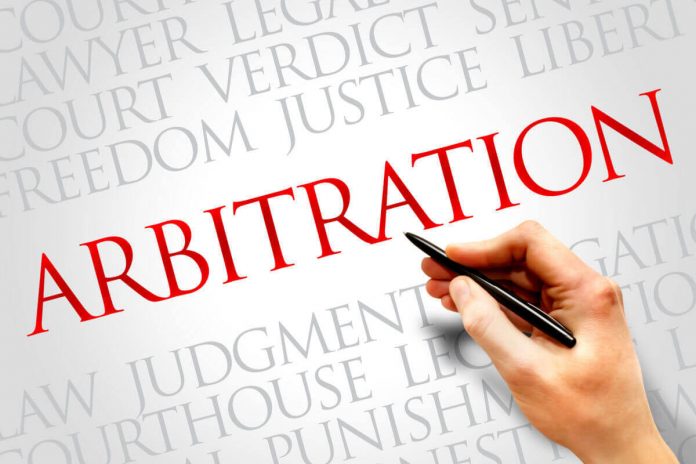
This article is written by Himani Kharai, pursuing Certificate Course in Arbitration: Strategy, Procedure and Drafting from LawSikho.
Table of Contents
Introduction
Arbitration is a procedure of Alternative Dispute Resolution that has opted over litigation for its less complicated, cost-effective, and time-saving nature of resolving disputes. By virtue of the Arbitration and Conciliation Act, 1996, the parties are rendered with options to choose the procedures they are most comfortable with depending on the complexity of the issue. One such procedure which has gained a lot of attention these days is “documents only arbitration”. This article discusses at length what exactly is meant by “documents only arbitration”, which provisions of the Arbitration and Conciliation Act, 1996 talk about it, the procedure and obligations with special focus on how it is the most used procedure in the current scenario.
What is “documents only” arbitration?
In the process of documents-only arbitration, the parties to the arbitration agreement and decide to resolve the dispute without an oral hearing in front of the arbitral tribunal. The tribunal makes the award depending on the written submissions made by the parties. The oral pleadings and evidence are also submitted in a written form. Written submissions may include pleadings, evidence, and statements of witnesses. The parties can proceed with the document only arbitration considering the following situations:
- If the arbitration agreement or arbitration clause “provides for a possibility of conducting the dispute resolution without an oral hearing” and the parties do not dissent.
- If the Parties have already “agreed to opt for documents-only arbitration, in the arbitration agreement or arbitration clause” as their dispute resolution procedure. If the “procedure is not finalized or pre-mentioned in the arbitration agreement or clause”. And the parties choose to proceed with the document-only procedure.
While opting for the documents-only arbitration, the parties waive their right:
- To be heard in person,
- To cross-examine witnesses and experts, and
- To conduct an oral argument.
What are the essentials to document-only arbitration?
There are two essentials in the document only arbitration to adhere to.
- The parties should agree to construct the arbitral tribunal consisting of “a sole arbitrator” chosen by the parties.
- The parties may with “mutual consent” agree to have their dispute resolved through document-only arbitration.
 How to opt-for document-only arbitration?
How to opt-for document-only arbitration?
The parties to the dispute on the basis of right bestowed upon them by the virtue of Section 19 of the Arbitration and Conciliation Act, 1966, choose the rules of the procedure.
“19. Determination of rules of procedure.
(1) The arbitral tribunal shall not be bound by the Code of Civil Procedure, 1908 (5 of 1908) or the Indian Evidence Act, 1872 (1 of 1872).
(2) Subject to this Part, the parties are free to agree on the procedure to be followed by the arbitral tribunal in conducting its proceedings.
(3) Failing any agreement referred to in sub-section (2), the arbitral tribunal may, subject to this Part, conduct the proceedings in the manner it considers appropriate.
(4) The power of the arbitral tribunal under sub-section (3) includes the power to determine the admissibility, relevance, materiality, and weight of any evidence.”
The arbitrator with the “consent of the parties” has the right to determine the rules of the procedure. The essential element of Section 19 is the mutual consent of the parties. If the parties do not agree to the procedure then the arbitral tribunal may conduct the proceedings as it considers appropriate for both parties.
Which provision of the Act talks about the procedure of document-only arbitration?
Section 29B of the Arbitration & Conciliation Act lays down the rules to adhere to in case of documents-only arbitration or also known as fast track arbitration. The concept of fast-track arbitration was brought into domestic arbitration through the 2015 Amendment.
Fast track arbitration deals with a few vitals such as:
- Under fast-track arbitration, the arbitral proceedings should end within a period of six months.
- Further, written pleadings are submitted without any oral hearings unless one party requests.
Fast track arbitration is the Indian version of the document-only arbitration followed in International Arbitration. Unlike the international regime, the Indian procedure limits the time limit of the fast-track arbitration to six months.
What are the cases suitable for documents-only arbitration?
Document-only arbitration applies only to straightforward, mid-to-low value disputes, in such cases where there is no need for detailed witness statements and cross-examining any witnesses. For example, any arbitrations arising out of multi parties or complicated cases, which may require expert evidence are not considered suitable for this sort of arbitration. The non-complex arbitrations may completely depend on document-only procedures. Contemporarily, many arbitrations are suitable for a documents-only procedure. Arbitration can be a good option for disputes concerning construction, the termination of M&A contracts, and the capital market in relation to derivatives contracts. Even the complex issues can also be dealt with the document only procedure, if not whole then a part of it.
For Instance: In the United Kingdom, construction dispute proceedings are often carried out within 28 days, and almost half of them are conducted on a documents-only basis without a site visit or a meeting. It also includes the disputes where the values are high and the issues are complex. For benefitting the most out of the procedure the parties have to press on the key issues and keep the submissions short in order to make the most important points stand out.
What are the considerations to be made before adopting a document-only procedure?
A documents-only approach is not suitable for all cases.
- Determining the central issues of the case may require assessment of oral evidence.
- The technical expert evidence requires a detailed explanation to ‘educate the tribunal’ orally.
- If there is a complicated issue to be proved, in such cases, the lack of a hearing either through cross-examination by counsel or by questioning from the arbitrator, can cause difficulties for tribunals in deciding an award.
- The decision to proceed with the documents-only basis should be made as early as possible so that parties can prepare their submissions and approach the proceedings accordingly. Ideally as part of the first procedural order.
Why is document-only arbitration beneficial?
Proceeding without an oral hearing is convenient and enhances efficiency.
- It enables a tribunal to render its award speedily without consuming a lot of time because it eliminates the oral hearings from the counsel or witnesses limiting the communication to emails only.
- It eliminates the unnecessary costs by eliminating the hearing, traveling costs for the tribunal, lawyers, and witnesses. Traveling is not required as email is the primary means of communication.
A documents-only arbitration is extremely beneficial in cases where cross-examination of the witness is not required.
Application of document-only arbitration serving in the current COVID scenario?
The COVID-19 pandemic has paused the world for a while. The Restrictions on travels, the adoption of social distancing, and the falling economy. All of this has brought the parties and arbitration tribunal closer to the concept of “Document-only Arbitration”.
As the world has become comfortable with remote-working. Virtual hearings are the talk of the town since the lockdown. Arbitration proceedings are also conducted through virtual hearings since the COVID-19 lockdown. Another alternative that has been considered and adopted in par with the current situation is document-only arbitration.
How does “document-only” arbitration proceed internationally?
In an international arbitration, any hearing can be converted into a document only if not mentioned or decided beforehand if all parties and the tribunal agree to it.
The Parties and arbitrators are given a wide set of options to choose any procedure to proceed under the International Arbitration Rules. Such rules can and should not be imposed upon the parties. The parties have the discretion to choose.
The document-only procedure cannot be imposed upon the parties because they have the right to hearing under most of the national and international laws, unless they choose to waive the right.
Relevant case laws discussing the essentials of procedure of document-only arbitration?
As documented, only arbitration is strengthening its roots in India. The Allahabad High Court has made a notable observation in its proceedings.
In Hamara Pump Mithoura HPCL Petrol Pump v. Chairman-Cum-Managing Director Hindustan Petroleum and Ors. 2018 (1) ADJ 363, the Court explained the importance of “mutual consent” in the case of adopting a document-only arbitration.
The parties to the dispute prayed for a direction of Fast Track Arbitration to be adopted by the appointed arbitrator.
The Allahabad High Court disposed of the prayer under Section 29B of the Act. It concluded that,
“…since there is neither an agreement between the parties for fast-tracking the arbitral proceedings nor has the Court reached the stage of constituting an Arbitral Tribunal. As would be evident from a bare perusal of Section 29-B, the prayer to fast track has to be made by parties at any stage either before or at the time of the constitution of the Arbitral Tribunal. This application has to be made in writing and is principally consensual. Before this Court, there is no consensus to fast-track the proceedings before the Arbitral Tribunal. In view thereof, the prayer to fast track cannot be granted by the Court in the absence of any consent having been expressed in this respect by the contesting parties.”
Conclusion
The document-only arbitration is the most considerable approach as it values time and money together. It is not mandatory to adopt such a procedure, but it’s a choice that can be made under Section 19 of the Arbitration and Conciliation Act, 1996. The procedure is the same as all the proceedings, it just excludes the oral hearing and considers it in a written form. Such a procedure is on par with the current pandemic and parties are looking for alternative means to settle disputes quickly. It depreciates the unnecessary procedural requirements of regular arbitration proceedings such as formal pleadings, witness statements or oral hearings. Therefore this procedure of dispute resolution is appearing like a life jacket in the difficult times of the COVID-19 pandemic.
Students of Lawsikho courses regularly produce writing assignments and work on practical exercises as a part of their coursework and develop themselves in real-life practical skills.
LawSikho has created a telegram group for exchanging legal knowledge, referrals, and various opportunities. You can click on this link and join:
 Serato DJ Crack 2025Serato DJ PRO Crack
Serato DJ Crack 2025Serato DJ PRO Crack









 Allow notifications
Allow notifications


